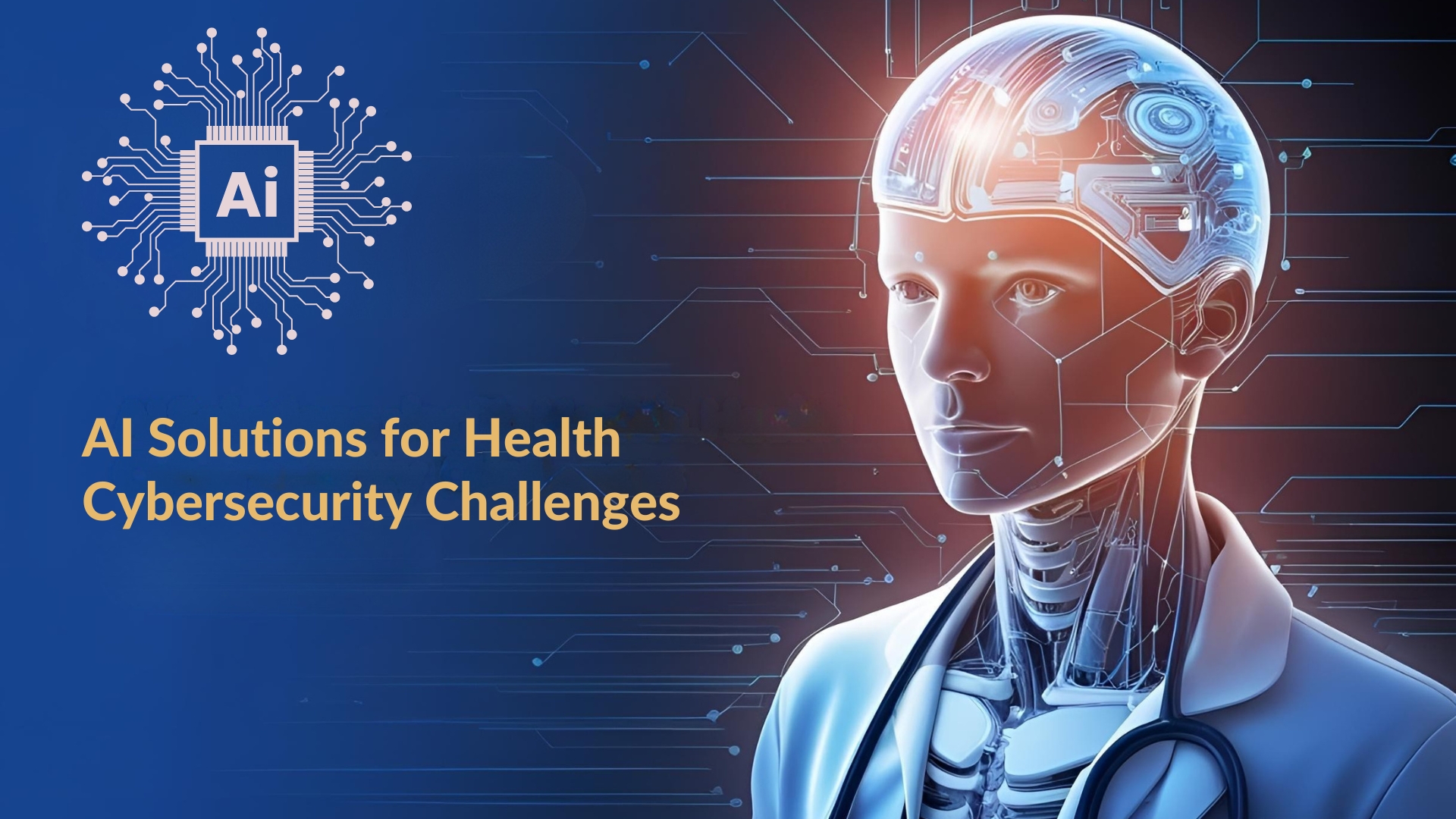In the ever-evolving digital landscape, healthcare organizations face unique cybersecurity challenges. With the increasing digitization of health records and the growing sophistication of cyber threats, safeguarding health and ensuring health information security is more critical than ever. This is where Artificial Intelligence (AI) steps in as a formidable ally in combating these challenges, offering cybersecurity compliance solutions tailored for the healthcare industry.
Understanding Health Cybersecurity Challenges
Healthcare systems are prime targets for cyberattacks due to the sensitive nature of the data they handle. Personal health information (PHI) is extremely valuable on the black market, making healthcare institutions lucrative targets for cybercriminals. The consequences of these attacks can be severe, including data breaches, financial losses, and reputational damage, which makes health information security and safeguarding health cyberattacks AI strategies essential.
Common Cybersecurity Threats in Healthcare
- Ransomware Attacks: Malicious software that encrypts an organization’s data, demanding a ransom for decryption. Such attacks can cripple healthcare operations and compromise patient safety.
- Phishing Attacks: Deceptive emails or messages designed to trick individuals into revealing sensitive information. These attacks often target healthcare employees to gain unauthorized access to systems.
- Insider Threats: Employees or contractors who misuse their access to health data for personal gain or malicious intent. Insider threats are particularly challenging to detect and prevent.
- Data Breaches: Unauthorized access to sensitive patient data, often resulting from weak security measures or vulnerabilities in the system, can severely impact health information security.
The Role of AI in Cybersecurity
AI is revolutionizing the way we approach cybersecurity in healthcare. By leveraging AI technologies, healthcare organizations can enhance their cybersecurity posture and protect sensitive health information more effectively.
AI-Powered Threat Detection
AI algorithms can analyze vast amounts of data in real-time, identifying patterns and anomalies that may indicate a cyber threat. This proactive approach allows healthcare organizations to detect and respond to threats before they cause significant damage.
- Machine Learning: By learning from past incidents, machine learning models can predict potential threats and recommend appropriate countermeasures. This predictive capability is invaluable in mitigating risks and improving health information security.
- Behavioral Analysis: AI can monitor user behavior and detect any deviations that may indicate unauthorized access or malicious activity. This helps in identifying insider threats and preventing data breaches.
Enhancing Cybersecurity Compliance
Compliance with cybersecurity regulations is a critical aspect of protecting health information. AI can assist healthcare organizations in achieving and maintaining compliance with industry standards and regulations.
- Automated Compliance Monitoring: AI systems can continuously monitor compliance requirements, ensuring that healthcare organizations adhere to necessary security protocols and regulations.
- Risk Assessment: AI can evaluate potential vulnerabilities and assess the risk levels of various systems and processes, enabling organizations to prioritize their cybersecurity efforts.
Custom Cybersecurity Solutions for Healthcare
Healthcare organizations require tailored cybersecurity solutions to address their unique challenges. AI plays a pivotal role in developing custom solutions that cater to the specific needs of healthcare providers.
AI-Driven Security Tools
- Intrusion Detection Systems (IDS): AI-powered IDS can identify and respond to suspicious activities within a network, minimizing the risk of unauthorized access.
- Automated Incident Response: AI can automate incident response processes, reducing the response time and minimizing the impact of a cyberattack.
- Encryption Technologies: AI enhances encryption techniques, ensuring that patient data remains secure during transmission and storage.
Safeguarding Health Information with AI
AI technologies offer healthcare organizations the ability to safeguard health information against cyberattacks effectively. By implementing AI-driven cybersecurity solutions, healthcare providers can enhance their security measures and protect patient data.
- Data Encryption and Decryption: AI can optimize encryption algorithms, ensuring that sensitive information remains secure from unauthorized access.
- Access Control Systems: AI can improve access control by implementing intelligent authentication mechanisms, preventing unauthorized users from accessing sensitive data.
Overcoming Challenges with AI in Cybersecurity
While AI offers numerous benefits in enhancing cybersecurity, it also presents certain challenges that must be addressed.
Challenges in Implementing AI in Healthcare Cybersecurity
- Data Privacy Concerns: The use of AI requires access to large volumes of data, raising concerns about data privacy and security.
- Integration with Existing Systems: Integrating AI solutions with existing healthcare systems can be complex and require careful planning and execution.
- Cost and Resource Constraints: Implementing AI-driven cybersecurity solutions may require significant financial and technical resources, which can be challenging for smaller healthcare providers.
Solutions to Overcome Challenges
- Privacy-Preserving AI: Developing AI algorithms that prioritize data privacy and security, ensuring that sensitive information is protected throughout the AI implementation process.
- Collaborative Efforts: Collaboration between healthcare providers, AI developers, and cybersecurity experts to develop solutions that are both effective and feasible.
- Scalable Solutions: Designing AI solutions that are scalable and adaptable to the needs and resources of various healthcare organizations.
Conclusion
AI is transforming the landscape of cybersecurity in healthcare, offering innovative solutions to address the unique challenges faced by the industry. By leveraging AI technologies, healthcare organizations can enhance their cybersecurity posture, protect sensitive health information, and achieve compliance with industry standards.
As the digital landscape continues to evolve, AI will play an increasingly vital role in safeguarding health information against cyber threats. By embracing AI-driven cybersecurity solutions, healthcare providers can ensure the security and privacy of patient data, ultimately improving patient care and trust in the digital age.






